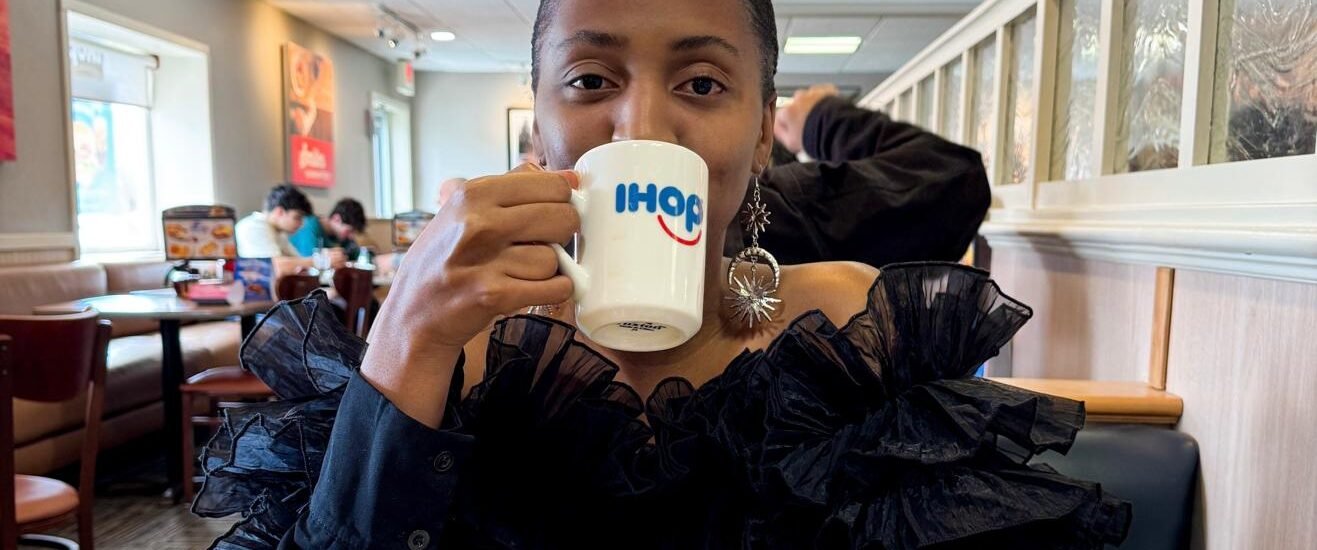


My friend today insisted that I check out IHOP… ‘an American classic’, he says. We went to the branch in East Lansing, and had a very delicious brunch. As we spoke and laughed over our meal, I felt something so simple yet so profound—happiness. Not the fleeting kind that comes from an adrenaline rush or a grand achievement, but the quiet, steady kind that makes you feel at home within yourself.
It made me think about how much my perception of happiness has evolved over the years.
In my late teens and early twenties, I had a very different relationship with happiness. Back then, I measured it through extreme highs—big wins, major milestones, intense love, and thrilling experiences. When I got my first big job, I was over the moon. When I launched my business, I was euphoric. When I fell in love, it was intoxicating.
But with every high came an inevitable low. When things didn’t work out as I had imagined, I would plummet—into sadness, self-doubt, even depression. The higher I had climbed, the harder I fell. The cycle was exhausting. It felt as if happiness was always dangling in front of me, just out of reach, requiring yet another big move, another win, another moment of exhilaration to sustain itself.
At some point, I started questioning if this was how life was supposed to be—a constant rollercoaster of extreme emotions. Why did I only feel truly alive when I was chasing something? Why did happiness feel so fragile, so conditional?
As I was writing By the End of Your Teens, I came across the concept of the hedonic set point—the idea that every person has a baseline level of happiness to which they naturally return, no matter what highs or lows they experience. It fascinated me.
I realized I had been approaching happiness all wrong. Instead of raising my baseline, I had been chasing temporary peaks, and each time I crashed, I fell lower than before. I wasn’t truly happy—I was just addicted to moments that made me feel high.
That realization changed everything. I stopped looking for happiness in external achievements or grand gestures. Instead, I focused on raising my baseline—building a life where I could be content even on an average day.
I started appreciating the little things:
It didn’t happen overnight. It took intentional effort—choosing balance over burnout, building deep and steady relationships rather than thrilling but volatile ones, practicing gratitude, and learning that enough could be enough.
Now, in my late twenties (at the margins of thirty), I feel a sense of stability I never had before. I still experience incredible highs, but I no longer fear the lows. If something amazing happens, I celebrate it. If it doesn’t, I’m still content. My happiness is no longer something I need to chase—it’s something I have built.
If I could tell my younger self one thing, it would be this: happiness is not a destination you reach when you achieve enough, love enough, or experience enough. It’s a home you create within yourself.
When we stop treating happiness like a prize to be won and start treating it like a skill to be cultivated, everything changes. The highs become sweeter, the lows become manageable, and the in-between moments—like a simple brunch with a friend—become just as fulfilling as the peaks we once chased.
So if you find yourself in that exhausting cycle of highs and lows, take a step back. Ask yourself: Am I raising my baseline, or am I just chasing the next high? The answer might change the way you live your life.
With an endless love for living,
Ntha